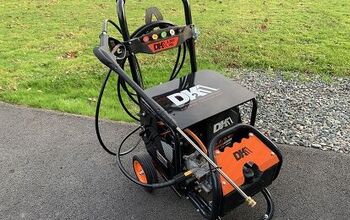Massachusetts: Another Town Meeting Rejects Red Light Cameras
Another Massachusetts jurisdiction that uses the broadly representative “town meeting” form of government has said “no” to the use of red light cameras. Residents gathered at the annual meeting in Raynham on Monday voted 104 to 95 against the idea of petitioning the legislature for permission to install automated ticketing machines. The town has a population of about 11,000, and all qualified inhabitants are allowed to vote.
Massachusetts law does not allow traffic cameras, and lawmakers have thus far resisted attempts to pass authorizing legislation. American Traffic Solutions (ATS), the private company looking to obtain the contract to issue tickets at intersections, has been looking to take the lobbying campaign to small town officials not subject to the strict state-level disclosure laws.
In Boston, ATS hired Lynch Associates, Inc to wine and dine lawmakers. Rival firm Redflex Traffic Systems of Australia hired Andrejs Bunkse, Serlin Haley LLP and Tamara Dietrich. Between 2005 and 2010, ATS, the Dutch firm Gatso and Redflex spent $161,432 lobbying state officials without success.
The firms have been equally unsuccessful at the local level. In 2006, the towns of Foxborough and Swampscott had rejected cameras, with the latter town producing a report ( view report) concluding automated ticketing machines would not have improved safety.
Photo enforcement has never survived when the question is put directly to voters. On Election Day last year, cameras were banned in Houston, Texas; Baytown, Texas; Anaheim, California; Garfield Heights, Ohio; and Mukilteo, Washington by votes of up to 73 percent against. In May 2010, 61 percent of Sykesville, Maryland voters overturned a speed camera ordinance. In 2009, eighty-six percent of Sulphur, Louisiana rejected speed cameras, 72 percent said no in Chillicothe, Ohio; Heath, Ohio and College Station, Texas also rejected cameras. In 2008, residents in Cincinnati, Ohio rejected red light cameras. Seventy-six percent of Steubenville, Ohio voters rejected photo radar in 2006. In the mid-1990s, speed cameras lost by a two-to-one margin in Peoria, Arizona and Batavia, Illinois. In 1997, voters in Anchorage, Alaska banned cameras even after the local authorities had removed them. In 2003, 64 percent of voters in Arlington, Texas voted down “traffic management cameras” that opponents at the time said could be converted into ticketing cameras.
A copy of the failed measure is available in an 80k PDF file at the source link below.
Town Meeting, Article 28 (Raynham, Massachusetts, 5/16/2011)
[Courtesy: Thenewspaper.com]
More by The Newspaper
Latest Car Reviews
Read moreLatest Product Reviews
Read moreRecent Comments
- 3-On-The-Tree My 2009 C6 corvette in black looks great when it’s all washed and waxed but after driving down my 1.3 mile long dirt road it’s a dust magnet. I like white because dust doesn’t how up easily. Both my current 2021 Tundra and previous 2014 Ford F-150 3.5L Ecobomb are white
- Bd2 Would be sweet on a Telluride.
- Luke42 When will they release a Gladiator 4xe?I don’t care what color it is, but I do care about being able to plug it in.
- Bd2 As I have posited here numerous times; the Hyundai Pony Coupe of 1974 was the most influential sports and, later on, supercar template. This Toyota is a prime example of Hyundai's primal influence upon the design industry. Just look at the years, 1976 > 1974, so the numbers bear Hyundai out and this Toyota is the copy.
- MaintenanceCosts Two of my four cars currently have tires that have remaining tread life but 2017 date codes. Time for a tire-stravaganza pretty soon.


































Comments
Join the conversation
I have never seen any MA public safety officials push for cameras. Law Enforcement in MA is very well paid, with construction details it is not uncommon for pay to go well over 100k plus generous benefits. I don't think police would be supportive of anything that would encroach on their turf. Mandates to use lower paid flagmen for details have consistently been defeated.
This has nothing to do with "safety" and everything to do with REVENUE. The pro-camera people will soon trot out their messaged stats and mention "children's safety" in the same sentence. As soon as the policy makers see the dollar signs, there'll be camera's in public restrooms looking for people who don't wash. That's a crime worthy of a fine right there. BD